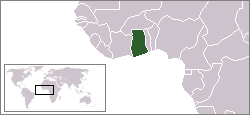
Lesbian, gay, bisexual, and transgender (LGBT) persons in Ghana face legal and societal challenges and discrimination not experienced by non-LGBT citizens.
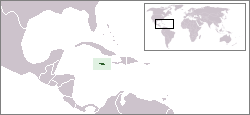
Lesbian, gay, bisexual, and transgender (LGBT) persons in Jamaica face legal and social issues not experienced by non-LGBT people. Consensual sexual intercourse between same-sex partners is legally punishable by imprisonment.

Scott Long is a US-born activist for international human rights, primarily focusing on the rights of lesbian, gay, bisexual, and transgender (LGBT) people. He founded the Lesbian, Gay, Bisexual, and Transgender Rights Program at Human Rights Watch, the first-ever program on LGBT rights at a major "mainstream" human rights organization, and served as its executive director from May 2004 - August 2010. He later was a visiting fellow in the Human Rights Program of Harvard Law School from 2011 to 2012.

Lesbian, gay, bisexual, and transgender (LGBT) people in Moldova face legal and social challenges and discrimination not experienced by non-LGBT residents. Households headed by same-sex couples are not eligible for the same rights and benefits as households headed by opposite-sex couples. Same-sex unions are not recognized in the country, so consequently same-sex couples have little to no legal protection. Nevertheless, Moldova bans discrimination based on sexual orientation in the workplace, and same-sex sexual activity has been legal since 1995.

Lesbian, gay, bisexual, and transgender (LGBT) persons in Uganda face severe legal challenges, active discrimination, state persecution and stigmatisation not experienced by non-LGBT residents. Both male and female homosexual activity is illegal in Uganda.
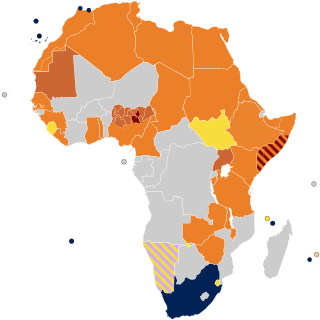
With the exception of South Africa and Cape Verde, lesbian, gay, bisexual, and transgender (LGBT) rights in Africa are limited in comparison to the Americas, Western Europe, Australia, and New Zealand. Out of the 55 states recognised by the United Nations or African Union or both, the International Gay and Lesbian Association stated in 2015 that homosexuality is outlawed in 34 African countries. Human Rights Watch notes that another two countries, Benin and the Central African Republic, do not outlaw homosexuality, but have certain laws which discriminate against homosexual individuals. Many of the laws that criminalize homosexuality are colonial-era laws.

Scott Douglas Lively is an American activist, author, and attorney, who is the president of Abiding Truth Ministries, an anti-LGBT group based in Temecula, California. He was also a cofounder of Latvia-based group Watchmen on the Walls, state director of the California branch of the American Family Association, and a spokesman for the Oregon Citizens Alliance. He unsuccessfully attempted to be elected as the governor of Massachusetts in both 2014 and 2018.

The Anti-Homosexuality Act, 2014 was an act passed by the Parliament of Uganda on 20 December 2013, which prohibited sexual relations between persons of the same sex. The act was previously called the "Kill the Gays bill" in the western mainstream media due to death penalty clauses proposed in the original version, but the penalty was later amended to life imprisonment. The bill was signed into law by the President of Uganda Yoweri Museveni on 24 February 2014. On 1 August 2014, however, the Constitutional Court of Uganda ruled the act invalid on procedural grounds.

Sexual Minorities Uganda (SMUG) is an umbrella non-governmental organization based in Kampala, Uganda. It has been described as the country's leading gay rights advocacy group.

David Kato Kisule was a Ugandan teacher and LGBT rights activist, considered a father of Uganda's gay rights movement and described as "Uganda's first openly gay man". He served as advocacy officer for Sexual Minorities Uganda (SMUG).

LGBT history in the United States spans the contributions and struggles of lesbian, gay, bisexual, and transgender (LGBT) people, as well as the LGBT social movements they have built.

The majority of the countries of the Commonwealth of Nations, formerly known as the British Commonwealth, still criminalise sexual acts between consenting adults of the same sex and other forms of sexual orientation, gender identity and expression. Homosexual activity remains a criminal offence in 32 of the 56 sovereign states of the Commonwealth; and legal in only 24.

Kasha Jacqueline Nabagesera is a Ugandan LGBT rights activist and the founder and executive director of the LGBT rights organization Freedom & Roam Uganda (FARUG). She received the Martin Ennals Award for Human Rights Defenders in 2011 and the Right Livelihood Award in 2015.

Frank Mugisha is a Ugandan LGBT advocate and Executive Director of Sexual Minorities Uganda (SMUG), who has won the Robert F. Kennedy Human Rights Award and Thorolf Rafto Memorial Prize 2011 for his activism. Mugisha is one of the most prominent advocates for LGBT rights in Uganda.
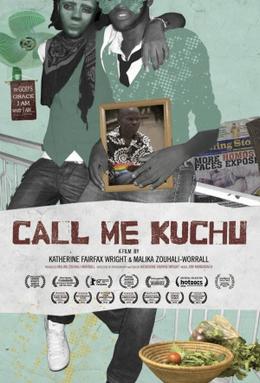
Call Me Kuchu is a 2012 American documentary film directed by Malika Zouhali-Worrall and Katherine Fairfax Wright. The film explores the struggles of the LGBT community in Uganda, focusing in part on the 2011 murder of LGBT activist David Kato.
Pepe Julian Onziema is a Ugandan LGBT rights and human rights defender and trans man. He began his human rights work in 2003. He has since participated in organizing LGBT pride celebrations in Uganda.
John "Longjones" Abdallah Wambere is a Ugandan gay rights activist and co-founder of Spectrum Uganda Initiatives, a Kampala-based LGBTI rights advocacy organization with a focus on health education. Because of the threat of violence and persecution he faces in Uganda, Wambere was approved for asylum in the United States by the U.S. Citizen and Immigration Services on September 11, 2014. He currently resides in Cambridge, Massachusetts.
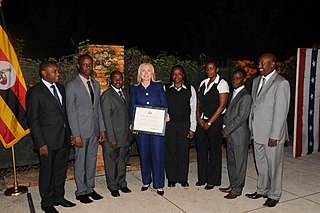
Julius Kaggwa is a prominent Ugandan intersex and transgender activist and executive director of intersex support organization Support Initiative for People with atypical sex Development (SIPD). In 2010, Kaggwa was a joint winner of the Human Rights First Human Rights Award. The following year, he was a joint winner of the Human Rights Defenders Award.
This is a timeline of notable events in the history of non-heterosexual conforming people of African ancestry, who may identify as LGBTIQGNC, men who have sex with men, or related culturally specific identities. This timeline includes events both in Africa, the Americas and Europe and in the global African diaspora, as the histories are very deeply linked.
Solome Balungi Bossa, , is a Ugandan judge on the International Criminal Court (ICC). Prior to her election to the ICC, she was a member of the Court of Appeal in Uganda, which also doubles as the Constitutional Court in the Judiciary of Uganda. She was elected to a nine-year term on 5 December 2017 and was sworn in on 9 March 2018. Previously she was appointed to a six-year term on the African Court on Human and Peoples' Rights in 2014.
















